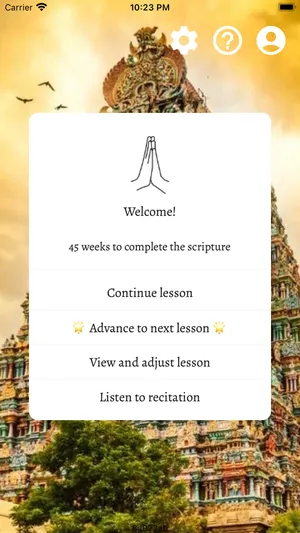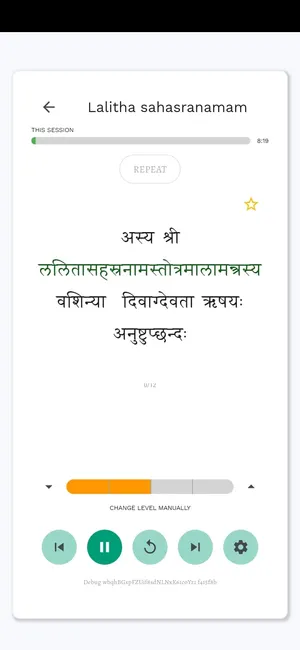
Learn Hanuman Chalisa
The Hanuman Chalisa is one of the most popular devotional hymns in praise of Lord Hanuman, composed by the great saint-poet Tulsidas in the 16th century. Written in Awadhi, the text consists of forty verses (hence the name Chalisa), each glorifying the strength, virtues, and divine qualities of Hanuman, the greatest devotee of Lord Rama. The hymn is deeply revered for its spiritual power and is often recited daily by devotees seeking courage, wisdom, and protection from negativity. Each verse describes Hanuman’s unmatched devotion to Lord Rama, his extraordinary strength, humility, and service. Hanuman is portrayed as the destroyer of evil forces, the remover of obstacles, and the embodiment of divine energy. Tradition holds that regular recitation of the Hanuman Chalisa brings peace of mind, removes fear, and grants blessings of health and prosperity. It is also believed to ward off evil influences, accidents, and hardships, making it a prayer of solace and assurance. Beyond its spiritual benefits, the Chalisa is admired for its poetic beauty and rhythmic flow, making it easy to memorize and chant. Through its verses, devotees are inspired to cultivate devotion, courage, and surrender, following the noble example of Lord Hanuman.










